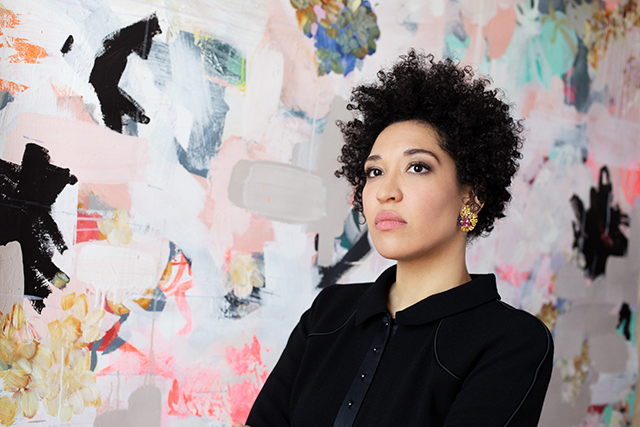Q&A with Julia Bullock

What first made you want to become a professional singer?
Honestly I’ve always wanted to perform. My first real desire to be a singer, though, came when I was eight years old and I saw Tina Turner in concert!
It wasn’t until I was in my late teens, when my stepdad shared some of his favourite recordings of classical Western European music with me, and his favourite singers, that I just fell in love and knew OK, this is where I think I can devote a lot of my energy, my time, and whatever my talents are.
You first worked with the Philharmonia in 2020, during the Covid lockdown. What was that like?
It was at the height of the COVID pandemic, which was a very intense time. In that scenario where we all had to be very careful and mindful of each other, that care and mindfulness went into the music-making in the most extraordinary way.
And yeah, we had a blast. We performed Britten’s Les Illuminations, and the piece is just fierce and ferocious and the Philharmonia Orchestra brought it. It was great.
Working with the Philharmonia is just a dream scenario for any musician. Not only does the orchestra have a tremendous sound, but the energy that they carry with them in the rehearsal space and on stage is just very warm, inviting, and very focused. It’s definitely a hardworking ensemble, no doubt about it.
How would you describe the Philharmonia Orchestra?
I would describe the Philharmonia as, first and foremost, a tremendous group of musicians. As a whole organisation, they think about what the overall experience will be for those who are coming to listen to the music. They take their role as people who represent culture and various cultures very, very seriously. There is real focus and intention, not just on the music that is being offered and shared, but also how it is being shared. And it’s for those reasons it’s a genuine pleasure and a privilege to be working with them.
Tell us about Margaret Bonds…
Margaret Bonds is a composer that I was introduced to just a few years ago. She had an amazing output of repertoire, and her songs, I think, are truly some of the greatest of all times. Even just a one-page song is the most extraordinary hidden gem. So I’m thrilled to have the opportunity to share her music in London, where not a lot of it has been heard yet.
Your programme pairs her music with songs by George Gershwin – why this combination of artists and how does their music speak to each other?
Margaret Bonds and George Gershwin are two composers that have a lot in common. They both wrote for theatre. They wrote for opera, they wrote for symphony orchestras. They wrote tremendous instrumental music and great songs. And they were writing around the same time.
It’s certainly no secret that George Gershwin was inspired by the art of black American musicians. And one thing that I address when sharing this music is the fact that the Gershwins profited greatly from their appropriation of black American art and black American artists.
Margaret Bonds speaks to this appropriation through a song which is a setting of a Langston Hughes poem. It’s called Note on Commercial Theater:
You’ve taken my blues and gone —
You sing ’em on Broadway
And you sing ’em in Hollywood Bowl,
And you mixed ’em up with symphonies
And you fixed ’em
So they don’t sound like me.
Yep, you done taken my blues and gone.
It is a very fierce critique from both Langston Hughes and Bonds, without naming the Gershwins explicitly. As a classical singer who is dealing with historic music on a daily basis, I have to consider history and all of its complexities every day. It’s a part of my life that I value very much. And I hope that it’s also something that anyone who loves historic music takes the responsibility to do.
This is an extract from a longer interview – watch it in full on our YouTube channel.

